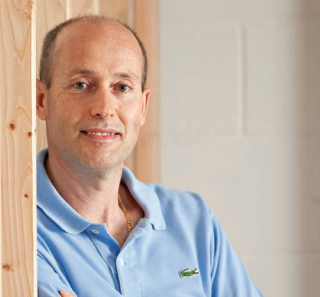Cutting-edge hypothermia treatment brings Clark man back to life.

Cutting-edge hypothermia treatment brings Clark man back to life.
Each holiday season, the De Almeida home in Clark came alive with family, friends, and fun. If someone didn’t have a place to go for Thanksgiving, a setting was always available at Eugenio “Gene” and Florbela De Almeida’s table.
Sadly, that wasn’t the case this past year after Mr. De Almeida suffered cardiac arrest just days before Thanksgiving.
“We had some guys here doing work,” Mr. De Almeida says, recalling that night. “They called me downstairs to see their work, and I remember nothing after that.”
What should have been the most festive time of the year turned into weeks of agonizing worry for the De Almeida family as Mr. De Almeida fought for his life.
“Each time we would come home from the hospital at night, we didn’t know if we would see him the next day,” explains Mrs. De Almeida.
Mr. De Almeida was later told that he had collapsed while talking and joking with the workers, who called 911. His son, Kevin, and daughter, Samantha, rushed to his aid. Robert Wood Johnson University Hospital Rahway paramedics Vito Cicchetti and Michael Fajardo arrived within minutes and worked feverishly to save Mr. De Almeida’s life.
“My son told me that they shocked me so many times, but couldn’t get a pulse,” De Almeida says. “They kept working and were able to revive me.”
Mr. De Almeida was taken to RWJ Rahway’s Emergency Department. There, physicians and nurses ordered a “code chill,” a term medical personnel use when they induce mild hypothermia to treat comatose patients who have experienced sudden cardiac arrest. The cooling lessens stress on the weakened heart while reducing the risk of brain damage from a lack of oxygen. This non-invasive procedure controls, monitors, and maintains a patient’s core body temperature in the therapeutic range (91° Fahrenheit).
Mr. De Almeida’s cardiac arrest resulted from a defective heart valve. Present since birth, the valve calcified and narrowed significantly over time, severely restricting blood flow to his heart. This, combined with an 80 percent blockage in another artery, led to the nearly fatal attack.
Mr. De Almeida had lived with symptoms— shortness of breath and fatigue—for years, for which his previous doctors had recommended monitoring his condition. They said he would need valve replacement surgery when he turned 50, but the defective valve didn’t last that long.
Several days after the attack, Mr. De Almeida was transferred to Robert Wood Johnson University Hospital in New Brunswick, where he could receive the complex valve replacement and heart bypass surgery he needed. Several health problems, including a collapsed lung and pneumonia, delayed his surgery until December 23, more than one month after his attack. When Mr. De Almeida was well enough for the procedure, George Batsides, MD, Assistant Professor of Surgery at UMDNJ-Robert Wood Johnson Medical School and a cardiac surgeon at RWJ, successfully completed the surgery by replacing the defective valve with an animal valve and performing artery bypass.
Since then, Mr. De Almeida has been on a long road to recovery, which included cardiac rehabilitation at the Nicholas Quadrel Healthy Heart Center for Cardiopulmonary Rehabilitation at RWJ Rahway, but he feels lucky to be alive.
“I can never show enough gratitude to everyone who saved my life,” Mr. De Almeida says. “It was a miracle the way they brought me back.”